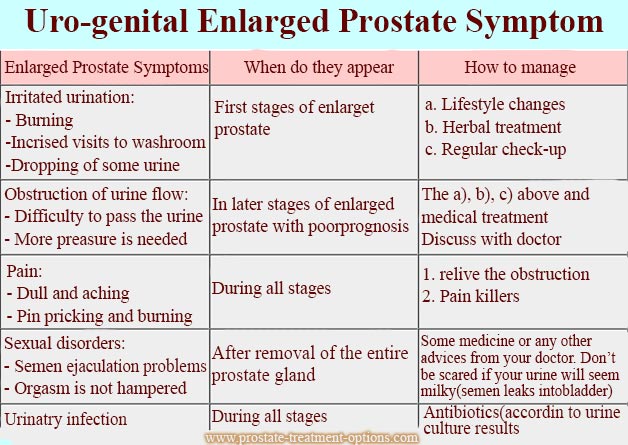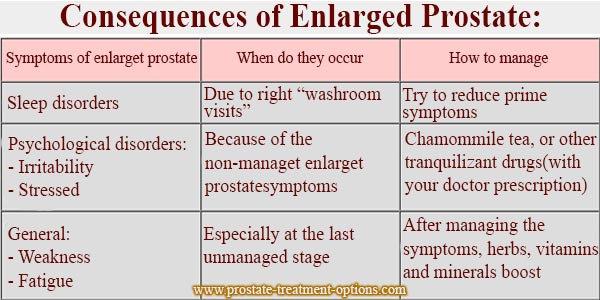Written by Dr.Albana Greca Sejdini, Md, MMedSc
Recognize the most important Enlarged Prostate Symptom
What is the most important enlarged prostate symptom? How to recognize it? What precautions should I take to stop further prostate enlargement?
Get all the answers here.
You must know that many men with enlarged prostate do not have any single symptom. The most important enlarged prostate symptom is urine incontinence.
Kevin Slawin, MD, a professor of urology at Baylor School of Medicine in Houston, gives its comment on this symptom: "They can't sit through a meeting or a plane flight without getting up. It's very annoying … and when they have to go, they really have to go."
Every other symptoms of an enlarged prostate has to do with urination. They include:
Difficulty starting urination;
Dribbling of urine, particularly at the end of urination;
Having the sensation of not emptying completely your bladder;
he necessity to urinate more often, especially during night;
You have a weak stream of urine;
urine leaking;
Pain when urinate and sometimes blood in urine (most probably from a urine infection);
Why do all enlarged prostate symptoms occur?
You must understand that in men, urine flows from the bladder through the urethra. When prostate is enlarged, a pressure is put on the urethra.
To adapt to this new situation (the narrow of urethra), your bladder contracts with much more strength to push urine through your body.
By the time passing, your bladder muscle becomes thicker, stronger and more sensitive. Thus, it may contract even when it contains only small proportions of urine. And you may suffer the need to urinate.
Although your bladder is making an effort to push the urine, it cannot overcome the narrow urethra. Thus, you finish to have the incomplete bladder emptying sensation.
What are the consequences of an enlarged prostate?
First of all, if your bladder does not empty entirely, you will end up on having urinary tract infections. Blood in the urine, bladder stones, acute urinary retention (not capable to urinate) or incontinence come next in the future.
Keep in mind that your doctor will advise surgery when you suddenly may not be able to urinate. If your symptoms are causing your annoy and trouble, consult your physician.
As for everything in our lives, prevention is better than curing. When you reach the 50-ties, make a schedule of appointments with your doctor to see the progress of your prostate enlargement, even if you have only frequent urination.



